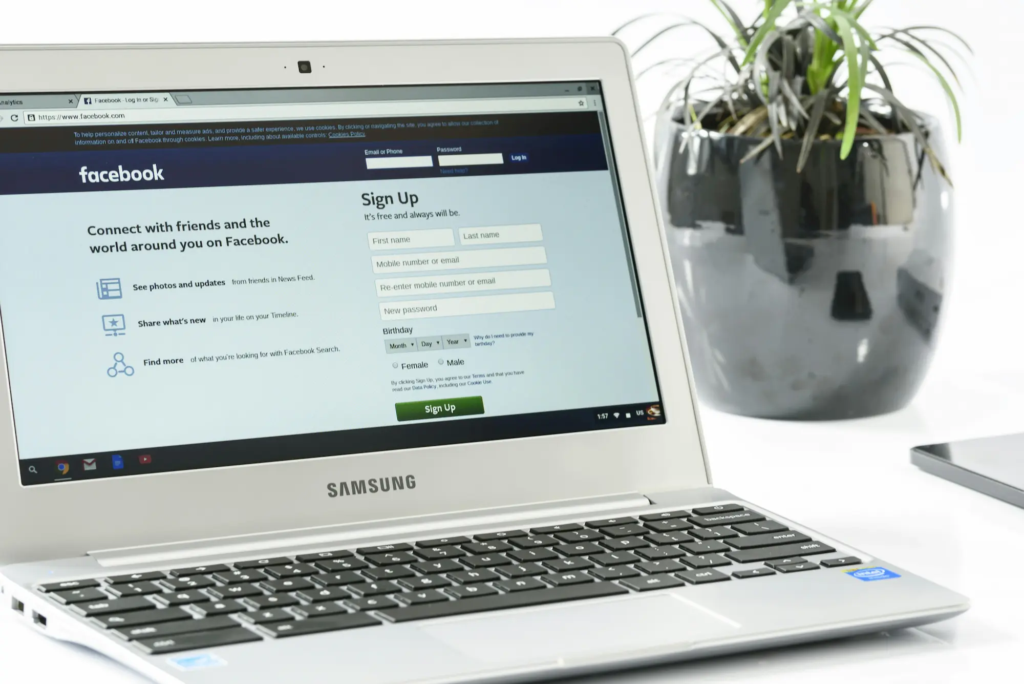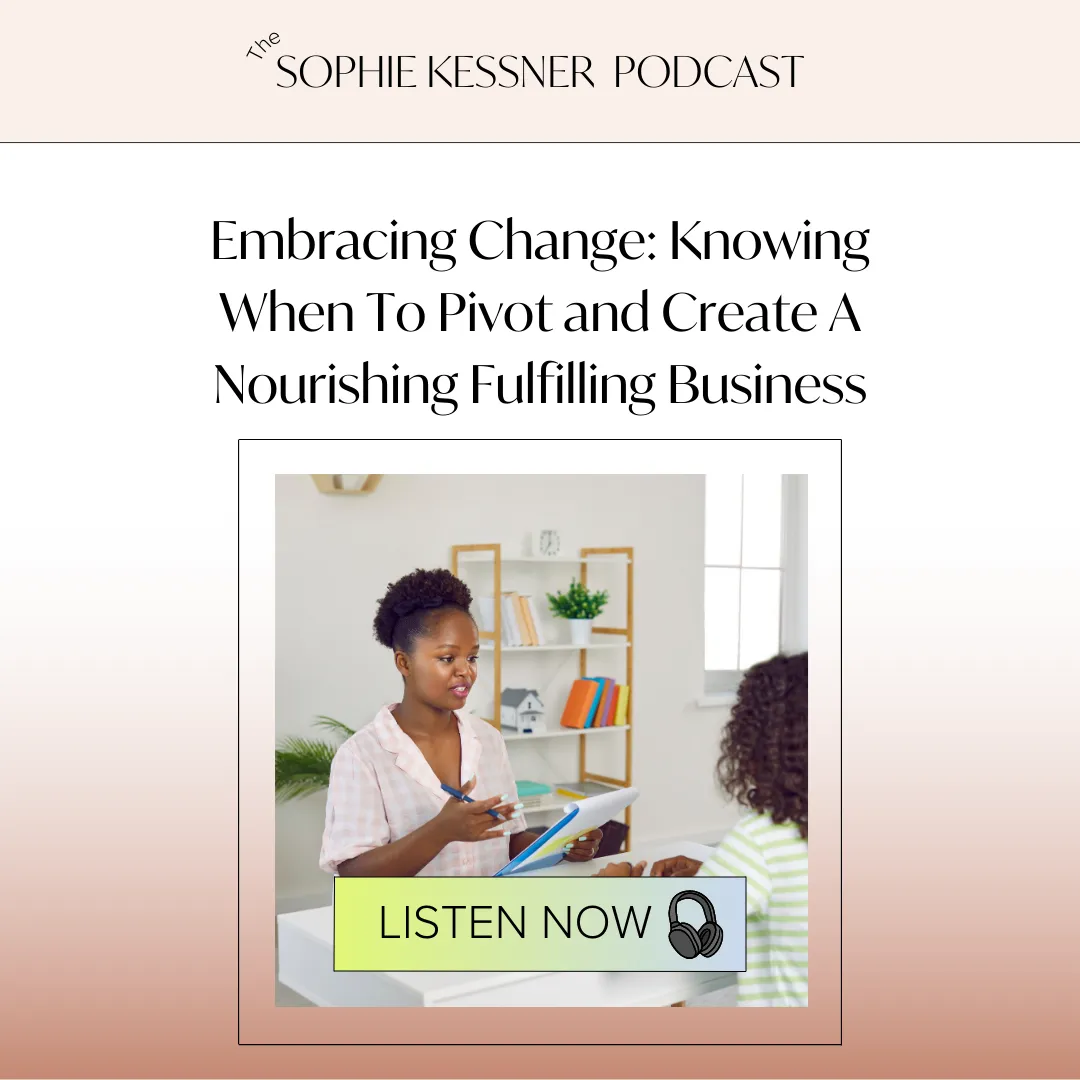Building a strong brand is one of the best moves you can make for your coaching business. In a crowded market full of coaching brands, having a clear brand identity helps you stand out and attract your ideal clients. Your personal brand story and coaching style shape how potential clients see you and decide if you’re the right fit.
Understanding how to define your unique value proposition and create a consistent visual identity across all your branding materials will set you apart. With practical tips on building a professional brand presence and using content marketing, you’ll be ready to grow your coaching career with a powerful personal brand that truly represents you.
Understanding Coach Branding Fundamentals
Branding for coaches is different from traditional business branding in one key way: it’s personal. Your coaching business is built around your skills, your story, and the unique way you help clients. Unlike products or large companies, coaching brands rely heavily on trust and connection. That’s why your personal brand story and coaching style matter so much—they shape how potential clients feel about working with you.
Coaching Industry Growth: $7B in 2025 Brings Opportunity and Competition
The coaching industry is growing fast, with the market valued at around $6.25 billion in 2024 and expected to reach over $7 billion this 2025. This growth means more opportunity but also more competition, making it even more important to have a clear brand identity that speaks directly to your niche and target audience.
Coaching Is About Connection: Why Clear Messaging Matters to Stand Out
When people choose coaching services, they’re not just buying expertise; they’re investing in someone who understands their challenges and can guide them forward. If your messaging is unclear or too generic, you risk blending into the crowded market and missing out on valuable connections.
Avoid These Common Branding Mistakes That Limit Your Coaching Growth
Common branding mistakes coaches make include trying to appeal to everyone, neglecting consistent visual branding, or failing to clearly communicate their unique value proposition. Without a strong personal brand, it’s hard to attract ideal clients who resonate with your approach.
The Benefits of a Strong Personal Brand: Credibility, Connections, and Career Growth
On the flip side, a well-crafted personal brand brings real benefits. It builds credibility, makes your marketing efforts easier, and helps you stand out in search engine ranking. A strong personal brand also creates meaningful connections that lead to referrals and long-term client relationships. Investing time in your brand strategy is an investment in your coaching career’s growth and sustainability.
Building a Unique and Consistent Brand to Attract and Trust Your Ideal Clients
By focusing on what makes your coaching style unique and aligning your brand message across all your branding materials, you’ll create a professional brand presence that attracts targeted traffic and builds trust with potential clients. This foundation sets the stage for everything else you do in your coaching business.
Defining Your Coaching Brand Identity

Your coaching brand identity is the heart of your coaching business. It’s what sets you apart from other coaches and helps you connect with your ideal clients. To build this, start by discovering your unique coaching style and approach. What makes your coaching different? Maybe it’s the way you listen, the tools you use, or the results you help clients achieve. Knowing this helps you create tailored content that truly reflects who you are.
Defining Your Niche and Target Audience to Build Trust and Connection
Next, think about your niche and target audience. Who are the people you want to serve? What challenges do they face? Getting clear on this lets you craft compelling brand messages that speak directly to their needs. When your brand story matches your audience’s pain points, you create meaningful connections that inspire trust.
Your unique value proposition is a simple statement that explains why clients should choose you over other coaches. It’s the promise you make and the benefit you deliver. A well-crafted personal brand includes this message clearly on your coaching website and all your branding materials.
Establishing a Consistent Brand Personality and Voice for Authenticity
Don’t forget about your brand personality and voice. Are you warm and friendly, or more direct and professional? Your tone should feel natural and consistent across your blog posts, social media, and podcast or YouTube channel. This consistency builds a strong personal brand that feels authentic.
Crafting Clear Mission and Vision Statements to Guide Your Coaching Brand
Finally, create mission and vision statements that reflect your purpose and goals. These aren’t just words on a page—they guide your marketing strategy and help you stay focused as your coaching career grows. When your brand identity is clear and consistent, it becomes easier to attract potential clients who resonate with your message and coaching style.
Visual Branding Elements for Coaches
Your visual brand identity is what people first notice about your coaching business. It’s how your brand stands out and stays memorable. Start with designing a professional logo that reflects your coaching style. Whether you’re a financial coach or specialize in wellness coaching brands, your logo should feel like a natural extension of your personality and approach.
Choosing Brand Colors That Connect Emotionally with Your Audience
Next, choose brand colors that resonate with your target audience. Colors evoke emotions and can influence how potential clients perceive your coaching services. For example, calming blues might work well for wellness coaching brands, while bold reds could suit a high-energy coaching style.
Choosing Professional and Approachable Typography for Consistent Branding
Typography is another key element. Pick fonts that balance professionalism with approachability. Avoid using too many different fonts—stick to two or three to keep your branding materials consistent and clean.
Building Trust with Consistent Visual Branding
Creating consistent visual templates for social media and marketing materials helps your brand stay recognizable across all your platforms. This consistent visual identity is crucial because studies show that over 80% of consumers need to trust a brand before considering a purchase. A cohesive and professional look signals reliability and seriousness about your coaching business.
Using Authentic Photos to Strengthen Your Coaching Brand
Finally, pay attention to photography and imagery. Use high-quality photos that reflect your coaching style and brand personality. Authentic images of you working with clients or in your coaching environment can create meaningful connections with your audience.
Strong visual branding supports your overall brand strategy and makes your coaching personal branding more powerful. It’s one of the key elements that helps your brand message reach and attract the right people.
Building Your Online Brand Presence
Your coaching website is often the first place potential clients meet your brand. It needs to do more than just look good—it should clearly show what makes your coaching services unique and why you’re the right fit. A professional coaching site with a clean design and easy navigation helps build trust right away.
SEO for Coaches: Optimizing Your Site to Attract Targeted Traffic

Start by optimizing your site for search engines using basic SEO tips. This means using keywords like “branding for coaches,” “personal branding,” and “coaching business” naturally in your page titles, headings, and content. This helps your site attract targeted traffic and rank higher in Google search results.
Crafting a Compelling About Page to Connect and Build Your Coaching Brand
Your About page is a powerful tool to build a professional brand presence. Share your personal brand story, your coaching style, and why you’re passionate about helping clients. This creates meaningful connections and shows potential clients the person behind the brand.
Adding Client Testimonials and Success Stories to Build Social Proof and Trust
Including client testimonials and success stories adds social proof. Hearing from current clients about their positive experiences strengthens your brand message and encourages others to reach out.
Content Marketing to Showcase Expertise and Engage Audience
Content marketing plays a big role here. Regularly create valuable content like blog posts, videos, or podcasts that showcase your expertise and offer practical tips. This high-quality content positions you as a trusted expert in the coaching industry and keeps your audience engaged.
Linking Your Website Across Platforms for Consistent Branding and Client Attraction
Remember to link your coaching website to all your platforms—social media, email newsletters, and any podcast or YouTube channel you run. Consistency across all your branding materials helps build a strong personal brand that attracts and keeps ideal clients.
By focusing on these key elements, your online brand presence becomes a powerful part of your overall brand strategy, helping you grow your coaching business and reach a broader audience.
Social Media Branding Strategy for Coaches

Social media is a powerful tool to build your coaching personal branding and connect with your target audience. But not all platforms work the same, so start by choosing the social media platforms where your ideal clients spend their time. For example, LinkedIn might be great for business coaches, while Instagram could be better for wellness coaching brands.
Creating a Consistent Visual Identity Across All Your Coaching Profiles
Once you pick your platforms, create consistent visual identity and brand elements across all your profiles. Use the same logo, colors, and tone of voice to make your brand easy to recognize. This consistent visual identity helps your coaching brand stand out and builds trust with potential clients.
Developing a Content Calendar to Plan and Organize Your Coaching Posts
Develop a content calendar to plan your posts ahead of time. This keeps your marketing efforts organized and ensures you regularly create valuable content that speaks to your audience’s needs. Mix up your posts with tips, client stories, behind-the-scenes looks, and calls to action.
Building Connections Through Follower Engagement
Engagement is key. Reply to comments, join conversations, and ask questions to create meaningful connections with your followers. This kind of interaction shows you care and helps build a loyal community around your coaching business.
Coaching Market Growth and the Need for Strategic Social Media
The coaching platform market is expanding rapidly, with an expected compound annual growth rate of nearly 14% between 2024 and 2034. This growth reflects the increasing importance of digital coaching solutions and highlights why maintaining an active, strategic social media presence is essential for coaches who want to stay competitive and reach a wider audience.
Using Social Proof and Analytics to Boost Brand Credibility and Inspire Content Ideas
Use social proof like testimonials, client wins, or shout-outs from other coaches to strengthen your brand credibility. Also, track your social media analytics to see what content works best and inspire fresh content ideas.
Leveraging social media with a clear brand message and targeted marketing campaign can attract potential clients and grow your coaching career faster.
Content Marketing for Brand Building
Creating valuable content is one of the best ways to build a strong personal brand and grow your coaching business. Whether you write blog posts, record videos, or host a podcast or YouTube channel, your content shows your expertise and helps you connect with your ideal clients.
Brainstorming Topics to Create Trusted Coaching Content
Start by brainstorming topics that address your target audience’s biggest challenges and questions. This audience brainstorming session will help you create tailored content that resonates and creates meaningful connections. Remember, high quality content positions you as a trusted expert in the coaching industry.
Lead Magnets and Email Marketing for Client Growth
Lead magnets like free guides or worksheets offer valuable insights and encourage potential clients to join your email list. Email marketing then nurtures these relationships by delivering personalized coaching tips and updates about your coaching services.
Using Video and Podcasts to Showcase Coaching and Grow Audience
Video content is especially powerful for showing your coaching style and personality. Short clips or live sessions let people get to know you beyond words on a page. Podcasts and YouTube channels also help you reach a broader audience and build professional networking opportunities.
Consistent Brand Messaging to Inspire and Attract
Content marketing is more than just creating posts—it’s about crafting compelling brand stories and messages that inspire action. Use your brand message consistently across all your platforms to support your marketing strategy and attract targeted traffic.
By focusing on creating valuable content that aligns with your brand strategy, you’ll build a well crafted personal brand that stands out and draws in potential clients.
Personal Branding vs. Business Branding for Coaches
Knowing when to focus on personal branding or business brand can make a big difference in your coaching career. Personal branding centers on you—your story, your skills, and your personality. It’s about building a strong personal brand that shows the real you. This approach works well if you’re the main face of your coaching business and want to create deep connections with your audience.
Building a Professional Business Brand for Coaching Growth and Expansion
The business brand, on the other hand, focuses on the coaching business as a separate entity. It’s about building a professional brand presence that can grow beyond just you. This is useful if you plan to expand your coaching services, hire a team, or create wellness coaching brands under one umbrella.
Balancing Authenticity and Professionalism in Your Coaching Brand Story
Balancing professionalism with personality is key. Your personal brand story should feel authentic but also reflect the values and mission of your coaching business. Sharing your journey and challenges helps build trust with current clients and potential clients alike.
Blending Personal and Business Branding for Coaching Success
Many coaches find success by blending both approaches—using personal branding for connection and business branding for growth. This mix lets you leverage all your skills while crafting compelling messages that attract the right audience based on your niche and target audience.
Choosing the right focus depends on your goals and coaching style, but either way, a strong personal brand or business brand sets you apart in a crowded market.
Brand Positioning and Competitive Analysis
To make your coaching brand stand out, you need to know who else is out there and what makes you different. Researching other coaches and their coaching brands helps you spot gaps in the market you can fill. Look at their brand elements, messaging, and how they connect with their target audience. This competitive analysis gives you valuable insights to shape your own brand strategy.
Highlighting Your Coaching Business’s Unique Value
Once you understand the competition, focus on positioning your coaching business in a way that highlights your unique value proposition. What do you offer that others don’t? Maybe it’s your personalized coaching style, your experience in a specific niche, or your approach to creating meaningful connections.
Pricing as a Key Element of Your Brand Positioning
Pricing is also part of your brand positioning. Your prices should reflect the value you provide and the brand stands you want to build. Avoid underpricing just to compete; instead, show why your coaching services are worth the investment.
Clear Brand Positioning to Attract Ideal Clients
A clear brand position helps attract potential clients who are the right fit for your coaching services. It also guides your marketing materials and targeted marketing campaigns, making your marketing efforts more focused and effective.
Building Your Personal Brand by Knowing Your Competition
By knowing your competition and defining your place in the coaching industry, you’ll build a strong personal brand that draws in ideal clients and grows your coaching career.
Measuring Your Brand Success

Tracking how well your brand is doing helps you know what’s working and where to improve. Start by looking at key metrics like website traffic, social media engagement, and the number of inquiries or bookings you get. These numbers show if your brand stands and marketing efforts are attracting targeted traffic.
Using Analytics to Understand Your Audience and Improve Marketing
Tools like Google Analytics and social media analytics give you valuable insights into who’s visiting your coaching site and how they interact with your content. This data helps you adjust your marketing strategy and create content that better speaks to your target audience.
Gathering Client Feedback to Ensure Authentic and Trustworthy Branding
Don’t forget to ask for client feedback regularly. Their opinions offer a clear view of how your brand message is landing and if your coaching personal branding feels authentic and trustworthy.
Measuring ROI to Strengthen and Grow Your Coaching Brand
Finally, measuring the return on investment (ROI) for your branding materials and marketing campaigns shows if your financial and time investments are paying off. By keeping an eye on these areas, you can keep your coaching business brand strong and growing.
Scaling Your Coach Brand & Conclusion
As your coaching business grows, keeping your brand consistent becomes essential. Whether you’re adding new coaching services or expanding your team, your brand identity should stay clear and recognizable across all your platforms. This consistency builds trust with current clients and attracts potential clients.
Aligning Branding for Consistent Growth
Preparing your brand for growth means setting up systems that keep all your branding materials aligned—from your coaching website to social media profiles and marketing materials. When your brand message and visual identity stay steady, your coaching personal branding remains strong.
Building a Team That Upholds Your Brand Values
Building a team that shares your brand values is key to maintaining a strong personal brand as you scale. Training your team on your brand elements and coaching style ensures your business brand stays authentic and professional.
Adapting Your Brand Strategy to Industry Changes for Continued Growth
Finally, stay aware of changes in the coaching industry and adapt your brand strategy when needed. Being flexible and open to new marketing strategies or tools helps you reach a broader audience and keeps your coaching career moving forward.
Building a Powerful Personal Brand for Long-Term Coaching Success
Focusing on these steps will help you create a powerful personal brand that stands out in a crowded market, attracts ideal clients, and supports long-term success for your coaching business. Your brand is more than just a logo or tagline—it’s the foundation for meaningful connections and a thriving coaching career.
Elevate Your Coaching Brand with Sass and SEO’s DIY SEO Course
Ready to take your coaching business to the next level? At Sass and SEO, we specialize in helping coaches like you build a powerful personal brand that attracts ideal clients and grows your professional brand presence. Our DIY SEO Course is designed specifically for coaches who want to boost their search engine ranking and attract targeted traffic without relying on expensive agencies.
Frequently Asked Questions (FAQs)
1.What is the difference between personal branding and business branding for coaches?
Personal branding focuses on you as the coach—your story, skills, and personality. Business branding centers on the coaching business itself, which can help if you plan to grow beyond just yourself.
2. How important is visual branding for a coaching business?
Visual branding is key to making your coaching brand memorable and professional. Consistent colors, logos, and fonts across all platforms build trust and help you stand out.
3. Can I build my coaching brand without a big budget?
Absolutely. Using DIY strategies like creating valuable content, optimizing your coaching website with basic SEO tips, and leveraging social media can grow your brand without heavy spending.
4. How do I find my ideal clients?
Start by defining your niche and target audience. Understand their challenges and needs, then craft your brand message and content to speak directly to them.
5. Why is content marketing important for coaches?
Content marketing helps you showcase your expertise and build trust with potential clients. Regular blog posts, videos, or podcasts keep your coaching brand visible and attract targeted traffic.






